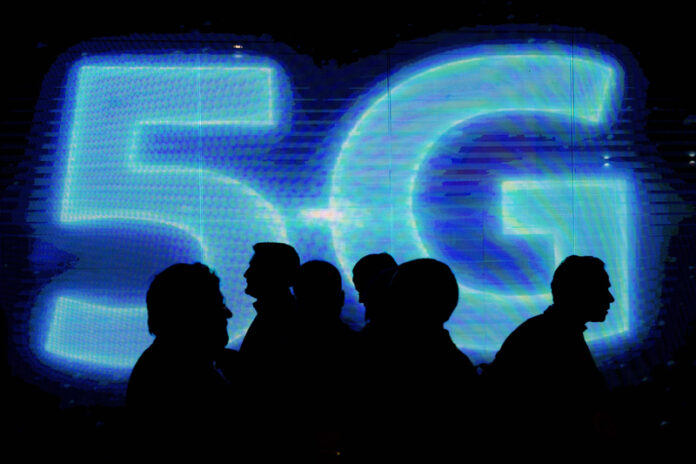DNB chief executive Ralph Marshall said Putrajaya avoided a 5G spectrum auction because it would merely yield a higher temporary value that would push costs higher, slowing down its rollout and make the technology less affordable. — AFP pic
KUALA LUMPUR, Feb 12 — Putrajaya avoided a 5G spectrum auction because it would merely yield a higher temporary value that would push costs higher, slowing down its rollout and make the technology less affordable, Digital Nasional Berhad (DNB) chief executive Ralph Marshall said.
Marshall was responding to Bangi MP, Ong Kian Ming, who raised over a dozen questions regarding the government’s decision to adopt the single wholesale network approach for its 5G plan.
Among the questions Ong had asked was for DNB to explain why it did not choose to auction the spectrum, which he suggested could have raised billions of ringgit in revenue for the government.
In a 20-page letter addressed to Ong, Marshall stressed that a spectrum auction is a one-time event against overall growth to the economy, citing Germany’s case whereby the spectrum was awarded to private enterprises based on administrative costs and not by bidding.
“Spectrum auction may provide higher temporary value to the Government, but high spectrum cost will make 5G rollout slower, more expensive and 5G less affordable,” the DNB chief executive wrote.
“It is also important to point out that spectrum auction is a one-time event, versus overall growth to the economy.
“We would refer to the German Government decision to allocate 5G spectrum for Private Enterprise based on administrative costs rather than auctions. Germany elected not to auction the spectrum but rather focused on the overall benefits to the general German economy.”
Marshall also pointed out that the Malaysian Communications and Multimedia Commission had never employed an auction approach to spectrum allocation.
He suggested a bidding war would result in increased spectrum prices, which telcos would then have to recoup in the form of high charges to end users.
“It is important to also note that the Government did not ever auction spectrum for use by MNOs for 2G, 3G and 4G, and many of the MNOs were given spectrum assignments for nominal payments which benefit was not passed through to the consumers,” Marshall wrote.
“As is apparent by the charges for these services when compared with charges by operators in countries where spectrum was bought by operators in government auctions.”
Ong had echoed concerns expressed by most mobile network operators (MNO) that the SWN model could end up stifling competition. Critics of DNB have insisted that MNOs could offer lower 5G prices in a free market where they can develop their own 5G infrastructures.
But Marshall said MNOs had shown no interest in developing 5G yet because they were more keen to consolidate their 4G networks, which ultimately led to Malaysia falling behind in the regional race to rollout 5G.
He cited the report that looked into the Allocation of Spectrum Bands for Mobile Broadband Service in Malaysia published in 2019, which he said had “inordinately delayed in its implementation as a result of posturing by the proposed consortium members.”
“There was no urgency in the MNOs to implement 5G as they were content to further sweat the 4G network that they owned and were making substantial returns from,” Marshall wrote.
“Malaysia continued to slip behind its Asean neighbours in 5G rollout with its attendant adverse consequences to foreign direct investment (FDI) that relies on telecommunication infrastructure and gross domestic product (GDP) growth in Malaysia.”
DNB has consistently maintained that it was set up not to operate as a profit-based outfit, but to carry out the government’s goal to make 5G equitable as it seeks to make high-speed internet technology a crucial trade medium that could help raise income and alleviate living standards.
“Much the same way that Malaysia’s petroleum and gas reserves (a limited and national resource) were not sold off to the highest bidder but vested in Petronas to exploit for the benefit of the nation and Rakyat,” Marshall said.
“5G spectrum is a limited national resource that must be utilised in the most efficient manner for the benefit of the nation and the Rakyat.”


